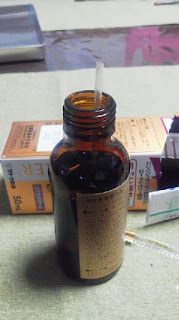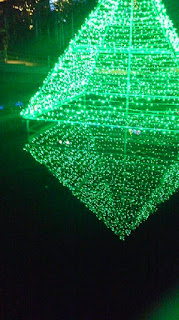Today, I don't write about Japanese culture.
Personally, I am writing a short story when I have time.
I am thinking that I ask someone to read my works for children in the future.
I want to do such activity in the future.
I wrote the first draft in Japanese. And I am not native at English. So, I think
made some mistakes.
I just show it here. It is kind of long. So, if you don't have time,
please skip it. ^^;
A wild boar on the rock
A
man, whose name is Sugitaro, was living in a small village. Sugitaro looked
shabby because he always wore brown patched clothing. Everybody in the village could
recognize Sugitaro in the distance because of his clothing. When people found
Sugitaro, they always tease him.
Sugitaro made a practice to clean around a big stone that is located at
the end of the village. That rock was called “Bear’s stone”. Bear’s stone was
named by people of the village. Bear’s stone looked like a big bear standing.
And it was said that the bear’s stone was the God of the animal in the mountain
near the village. But the shape of the bear’s stone looked so weird. Nobody but
Sugitaro came near to the bear’s stone.
“After I was dead, who clean this bear’s stone? What can I do…?”
Sugitaro cleaned around the bear’s stone and laid
a yellow lily on the bear’s stone as usual. And he went to work to his field in the
mountain. He spent days like that way.
By the
way, there was a man, whose name is Tasuke, was living in the village. He was
very great hunter. He always hit game. As soon as he found a hare in the distance,
he aimed at it. He could hit it immediately. His skill of hunting was excellent
and known well not only in the village but also in the neighbor’s village. All
people praised his skill. All people respected for him.
One
day, Tasuke went hunting at the mountain near the village. The day was special
day. Because Tasuke kept hitting 95 times without any mistakes until that day.
He got excited to imagine what kind of animal he hit at the 100 attempt. A lot
of people followed him to see his hunting. They wanted to see until when Tasuke
kept breaking the record of hunting.
His
hunting started. He immediately hit 4 rabbits one after another.
“Wow!! Great!!”
All
audience got excited.
Tasuke was inflated with pride.
“You see!? I am the best hunter in the
world! ”
“How great!”
People got excited again.
Tasuke found a wild boar on the rock. The wild
boar has a fine bristle. The color of the bristle was golden and shining.
“That’s my game. Look!”
Tasuke run up the path of the mountain. And he
hid behind the bush. He approached to the golden wild boar and got his bow and
arrow ready. It became quiet. Everybody watched at Tasuke. The moment Tasuke
were going to shoot, people heard a sound.
Peeeh peeeeh peeeh!!
It was a whistle. The wild boar got surprised and run away. Tasuke
shot an arrow toward the target. The arrow seemed to hit the hoof, but the wild
boar run into a bush. He has gone to somewhere.
People sighed with disappointed.
Tasuke looked at the audience and shouted.
“Who did it!? I’ll push him
over the cliff!”
The audience became quiet with fright.
Tasuke was mortified because he could not find the nuisance. He
could not help but going back to his house in the village. But when he was
walking on the path, he found a man standing near the rock. It was Sugitaro.
Sugitaro was on the way to his home from his work at the field.
“Hey,
you did it, right!?”
Tasuke shouted.
“ Tasuke, the golden wild boar has some
babies. You shouldn’t kill it.”
Tasuke got mad and shouted again, hearing what
Sugitaro said. But Sugitaro did not mind about that and he went back to his
home.
Since
then, people in the village became to ignore Sugitaro. It was said that once
Tasuke got to know someone were talking with Sugitaro, he or she would be left
out of people in the village. Sugitaro was in a fix. When he tried to talk to
someone, he or she always run away. But he did not find a good way. He just keeps
working in his field as usual.
A
few days later, Sugitaro found a golden wild boar lay in front of the bear’s stone.
“Oh, here you are. Are you OK? You hurt
your hoof.”
Sugitaro heard a small sound in the bush. When
he saw in the bush, there were four babies of the wild boar.
“Yeah, you rear babies. I thought you had
babies. I was right. Hey, wait a minute.”
Sugitaro tore his clothing and treated injured
hoof.
“You must be hard to find foods for a
while.”
Sugitaro gave the half of his lunch to the
wild boar.
“You shouldn’t come to village. People like
the hunting. It is dangerous place to you.”
Sugitaro went to his field to work.
Many
days have passed since then. It was the beginning of winter. A man, who ate a rabbit, died. The rabbit was
hunted at the mountain near the village. Since the incident, terrible things
happened occasionally. A lot of people died in succession. People feared of the
mysterious illness. A lot of old man and children died. The grandfather and grandmother
of Tasuke died of the mysterious illness. Besides that, Tasuke’s child caught
the illness. Because of this affair, people lost the time for hunting. There
were no people who go to mountain for hunting.
“It’s awful…our village will collapse soon.”
All
people in the village got lost. All people looked absentminded. The village
became silent.
One
night, there was a sound outside the house. People in the house heard the
hurried footsteps. He was walking with light steps.
Rumor had it that some deer came to the village in order to seek for
their foods. But someone saw a wild boar running on the lane of the village.
After
that night, the mysterious illness seemed to be disappeared miraculously.
Tasuke’s child did not die because of the mysterious illness.
People said that the wild boar someone saw at
the night was the golden wild boar. People said that the golden wild boar is
God and he came to our village to get rid of the demon.
The
spring has come. It was a good season for hunting. Tasuke was so excited about the season. And
he departed for the mountain as usual. A lot of audience followed to see his great
hunting.
When he tried to look for the first game to hunt in the mountain, he saw
something running up to the rock. That was the golden wild boar. Tasuke and the
audience became silent.
“That’s the wild boar, he helped our
village.”
“Tasuke, he must be God. We had better not
hunt him.”
People made noisy.
Tasuke did not aim at the golden wild boar.
The golden wild boar on the rock viewed the
bushes, which are extended to the valley.
The bristle on his back was shining.
“He has a bandage over his hoof.”
“Is that Sugitaro’s clothing?”
People thought Sugitaro treated the wild
boar when Tasuke hit the hoof.
Since then, people have never teased Sugitaro.
People invited Sugitaro to the festival of the village. Tasuke gave Sugitaro
foods and new clothings in apology for his behavior.
People found that the bear’s rock was great
God of the mountain. And people kept the rule to clean it every day. Now there
are a lot of people who give the offering for the bear’s stone. All people in
the village became to respect for God of animal and stopped the rough hunting.
(copyright reserved)
























































